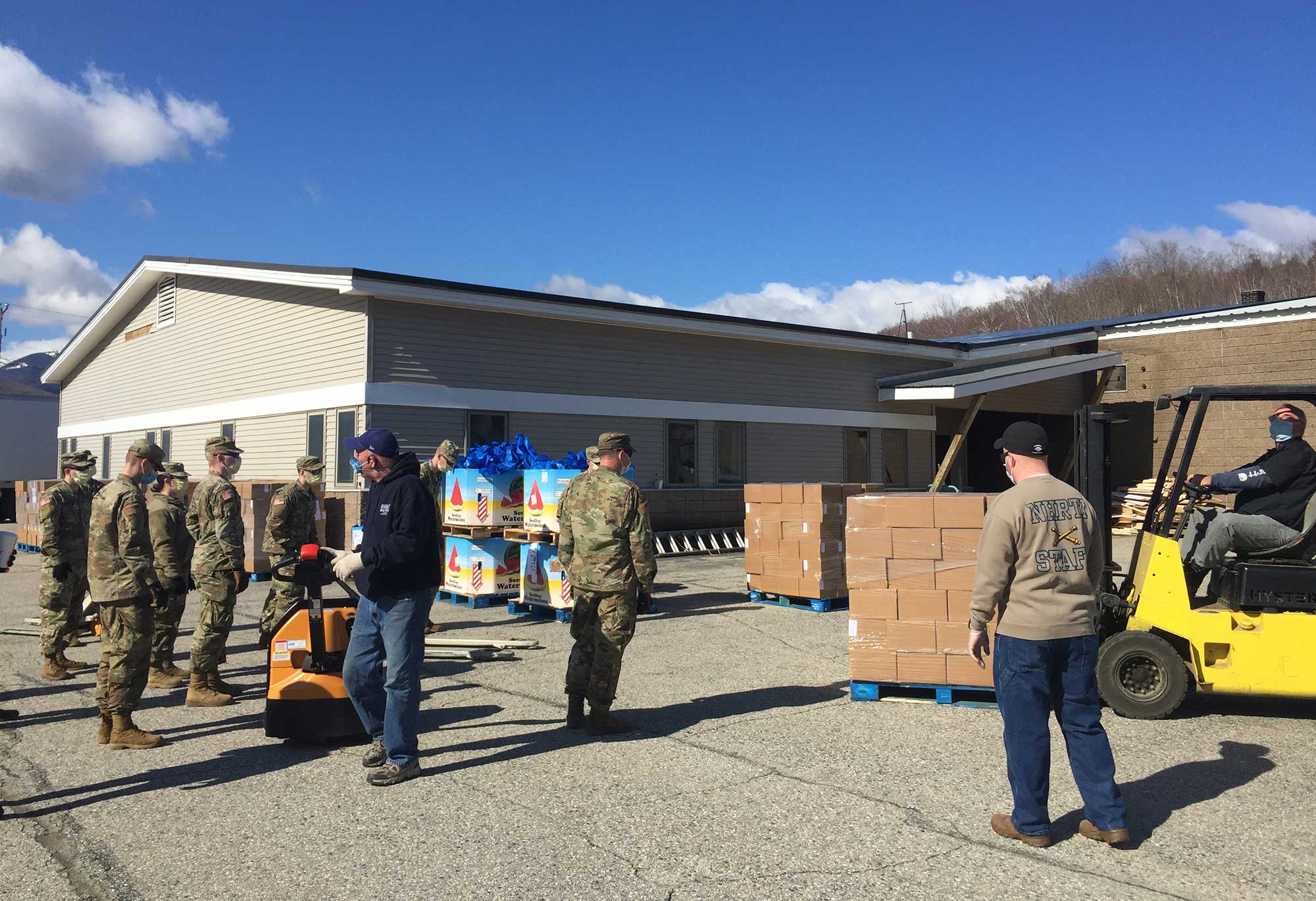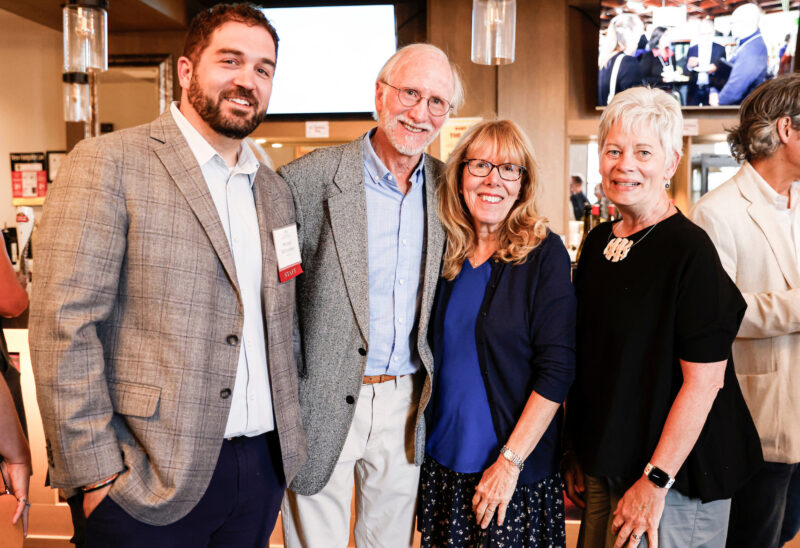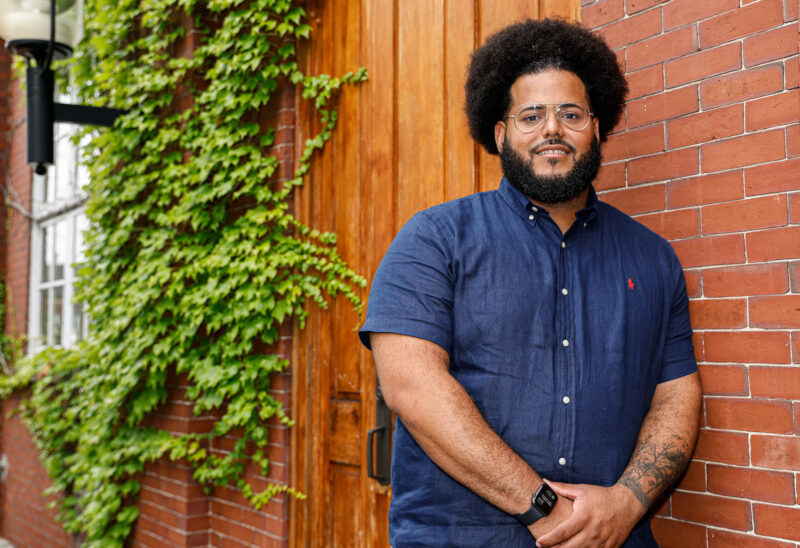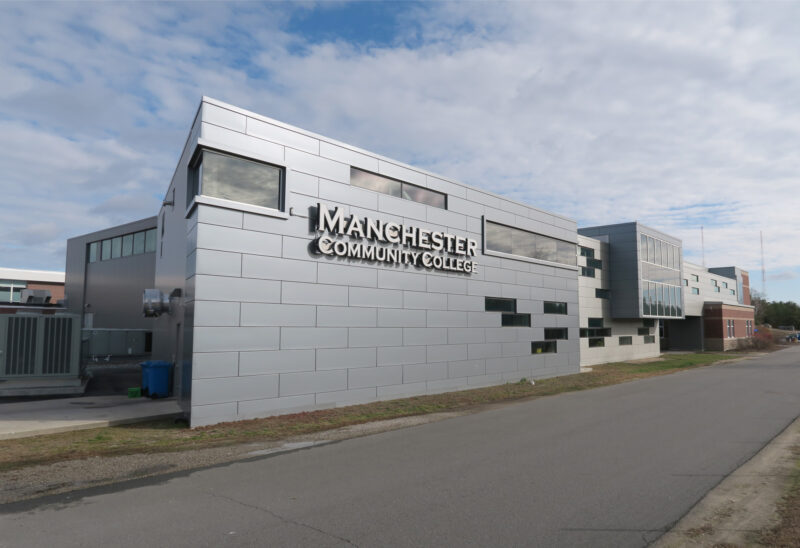The geographic size of New Hampshire’s North Country is easily underestimated: it takes two hours to drive from Franconia Notch to Pittsburg, and the northernmost county — Coös — accounts for 20 percent of the state’s area, but a mere two percent of its population.
For struggling families, that geography — and the relative scarcity of food pantries in the region — can make for too many hungry days. And for organizations dedicated to helping make sure people have enough to eat, the logistics of food distribution and fresh-food access in the region have been perennial challenges.
To help address this issue, the Neil and Louise Tillotson Fund has awarded a three-year grant to the New Hampshire Food Bank to hire a North Country-based food systems coordinator, and to support infrastructure to create greater food security in Coös County.
“The people who operate Cöos County’s small food pantries and programs have done incredible work, for generations, without the benefit of a coordinated system of support or logistics,” said Phoebe Backler, a senior program officer for the Tillotson Fund. “We have been hearing from these folks that the need for their services continues to grow, and that the current public-health crisis has further exacerbated that need. We wanted to help strengthen the system and infrastructure to better support these programs and address food insecurity region-wide.”
Christy Langlois, who grew up in Berlin, is the Food Bank’s North Country coordinator. Just weeks after she started in the new position, nearly everything was upended by the COVID-19 pandemic. Langlois has established working relationships with North Country food pantries and adjusted to their changing needs during the pandemic, all while continuing to work toward long-range goals.
Langlois works with 50 food pantries and soup kitchens in Coös County and the northern tier of Grafton and Carroll Counties — roughly the top half of the state. (Statewide, the Food Bank works with 425 agencies.) Langlois will help coordinate ordering and distribution, creating “economies of scale” that help local programs, work to increase awareness of and enrollment in SNAP for eligible residents in the area, grow the Food Bank’s outreach to elderly populations, support summer food programs through local schools, and work with local farmers to increase food pantries’ access to fresh, local produce. Coös County has the highest rate of food insecurity in New Hampshire, with 11.4 percent of the population “unsure of where or when they will get their next meal,” according to the Food Bank.
“What appealed to me about this position is that it would be a true systemic change to the North Country,” said Langlois. “I felt that was really important to this area, and I want to be a part of it.”
Langlois is also working to establish a Food Bank warehouse in the North Country, which will solve many logistical problems of local food distribution.
“In Manchester, all the agencies are able to go to the warehouse and shop the floor and get fresh produce,” Langlois said. “That’s something that isn’t able to happen up here. Everything that comes from Manchester has to be distributed the day it arrives, because of refrigeration and storage issues.”
Representatives from some North Country agencies have to drive more than an hour to reach the closest distribution site. Most collections are done in personal vehicles. And the deliveries are scheduled far in advance, which means they sometimes happen — outside, in a parking lot — during every kind of inclement weather, from snowstorms to blazing summer heat.
Despite the added challenges of the pandemic, including an increased need for food in some areas and the closure of some food pantries whose elderly volunteers were unable to continue because they were themselves at high-risk, bright spots have emerged. Langlois has, by necessity, been in regular contact with agencies to help get them what they need, from fresh produce and proteins to hand sanitizer and diapers. That’s helped strengthen fledgling relationships. She also helped to establish a new food pantry in Errol.
“Before, people had to travel about 40 minutes to Colebrook or almost an hour to Berlin to reach a food pantry,” said Errol Fire Chief Brad Eldridge, who is helping to manage the new pantry. “Our first pantry was April 25, and we had five people. Now we have 64 households participating.”
Eldridge said part of the need is COVID-related, because residents, including many people over 65, are nervous about traveling to get groceries and about being in a large store. At first, he said, people in this small community of about 300 residents hesitated to accept food out of a sense of pride. But he and the town’s public safety committee have worked to get the word out, and the program has grown quickly.
Since March, the New Hampshire Food Bank has also held weekly mobile food distributions throughout the state to help families affected by the public-health crisis, including at North Country locations. When COVID was more present in other parts of the country than in New England, representatives from the Food Bank were proactive — reaching out to counterparts on the west coast to learn from them about how to prepare for what was coming. The Food Bank’s resulting pre-ordering of food and supplies helped that organization to respond swiftly to the increased need in New Hampshire.
“We’ve been seeing, on average, 470-570 households attending these in the North Country,” Langlois said. “We’ve found that the numbers of individual households coming to these events is greater in the North Country than elsewhere in the state, as food insecurity continues to be a hurdle for many in this rural region.”
Continuing to help the region’s food pantries and their clients in the short term, while looking at the bigger picture moving forward, will likely take some stamina. Langlois knows that, and the people she’s working within communities throughout the North Country are happy to have her a phone call away.
“She’s an absolute joy to work with. She is so passionate about her job,” said Eldridge. “She pointed us in the right direction, and our food pantry continues to grow. It’s been a great thing.”













![Rev. Heidi Carrington Heath joined Seacoast Outright. [Photo by Cheryl Senter]](https://www.nhcf.org/wp-content/uploads/2024/05/Heidi-Carrington-Thumbnail-800x548.jpg)
![Dr. Jennie Hennigar treats a patient at the Tamworth Dental Center [Photo by Cheryl Senter]](https://www.nhcf.org/wp-content/uploads/2024/05/TCCAP-Hero-800x548.jpg)

